(412) 586-4678

(412) 586-4678
Attention Loyal Patients: We’re excited to share that Lee Silsby Compounding Pharmacy is serving all prescription compounding patients from Murray Avenue Apothecary! Rest assured, your specialized needs will continue to be met with the same dedication and care you’ve come to expect.
Questions? Reach out to MAA through 3/20/2024 or Lee Silsby at (800) 918-8831. Learn more →
Compounding is the long-established tradition in pharmacy practice that enables physicians to prescribe and patients to take medicines that are specially prepared by pharmacists to meet patients' individual needs.
A growing number of people have unique health needs that one-size-fits-all medicines cannot meet. For them, customized, compounded medications ordered by licensed physicians or veterinarians and mixed safely by trained, licensed compounding pharmacists are the only way to better health. Compounding is in even greater demand for treating animals because of the relatively narrow selection of medicines that are manufactured by pharmaceutical companies.
Because every patient or pet is different and has different needs, customized, compounded medications are a vital part of quality medical care.
There are several reasons pharmacists provide compounded medications for patients. The primary reason for compounding is to avoid patient non-compliance, which means the patient is either unable or unwilling to use the medication as directed. Many patients are allergic to preservatives or dyes, or require a dosage that is different from the standard drug strengths.
With a physician’s consent, a compounding pharmacist can:
The licensed pharmacists and certified lab technicians who work in our state of the art compounding lab at Murray Avenue Apothecary follow strict USP 795 guidelines for compounding. These guidelines dictate lab operations, the proper protective lab wear, washing and disinfecting, and effective cleaning of equipment.
The FDA approval process is intended for mass-produced drugs made by large manufacturers. Because compounded medications are personalized for individual patients, it is not possible for each formulation to go through the FDA’s drug approval process, which takes years to complete and is prohibitively expensive, often costing hundreds of millions of dollars.
Compounding may or may not cost more than conventional medication. Its cost depends on factors such as the type of ingredients and equipment required, plus the time the pharmacist spends researching and preparing the medication. Fortunately, compounding pharmacists have access to pure-grade quality chemicals which dramatically lower overall costs and allow them to be very competitive with commercially manufactured products.
Almost anything can be compounded for those unique patients needing individualized therapies.
We receive a Certificate of Analysis for every chemical we use in our compounding lab. This tells us the tests that were performed on the chemical to help identify and classify it, along with testing for quality and purity.
A large majority of chemicals used in compounding as well as pharmaceutical manufacturing are produced outside the United States. Our suppliers only carry chemicals that come from FDA regulated facilities. Failing these standards means being shut down.
Yes, all chemicals that carry the “USP” brand are run through numerous tests according to the USP (United States Pharmacopeia) standard for that chemical. The chemical itself determines what tests are performed based on its unique characteristics. Murray Avenue Apothecary sends its finished compounded products to Compounders Analytical for third-party testing for efficacy and stability.
Some drugs, according to USP, require testing for microbial growth because they may be more likely to harbor microbes. Other chemicals do not require these tests because it is unlikely they can sustain microbial growth.
Committed to our profession. Ask a chain pharmacist, “How do you like your profession?” in almost every case they say, “I hate it!”
In every case, the response is, “I absolutely love what I do.” You are fired up and you bring your passion and commitment to your patients and our organization.
Our patients are passionate about customized medications. They support our strength. When we compound prazosin and recommend Epsom salt baths for an abused seven-year-old foster child with PTSD, that mom is eternally grateful. She’ll stand up and help us fight our fights. When we compound a 55-year-old’s hormone replacement therapy and it saves their marriage, that gratitude cannot be expressed by words.
We are compassionate. We care for our patients and always have their best interests in mind. We love our patients and they love us.
We are nimble and creative. We continue to look for ways to solve our patients’ unique health challenges. When a manufacturer cannot make a drug, we are there. When a doctor cannot formulate a solution to a patient’s health challenge, we are there — and we succeed.